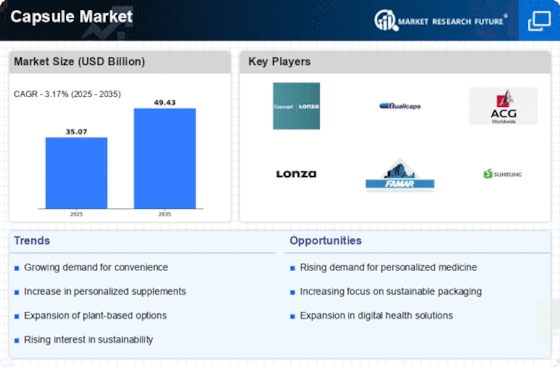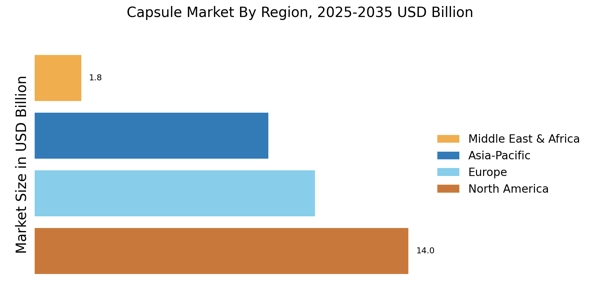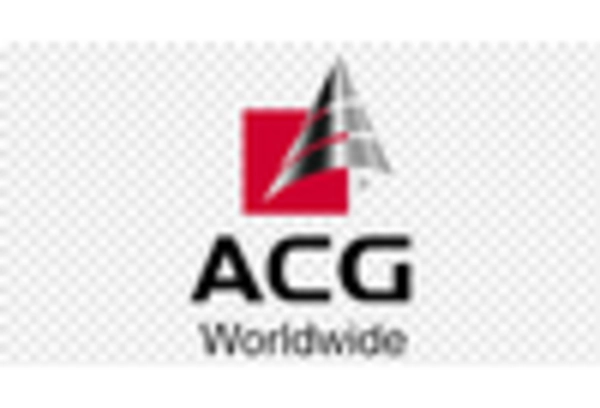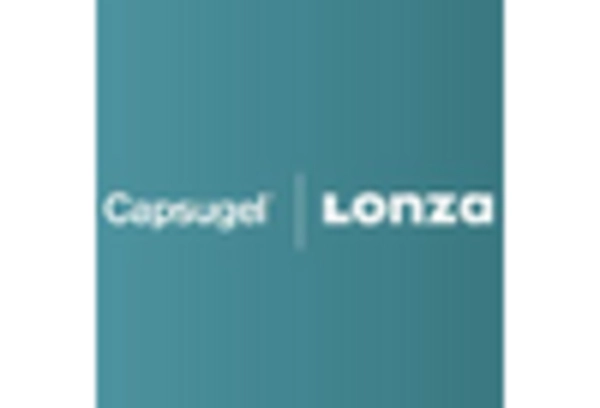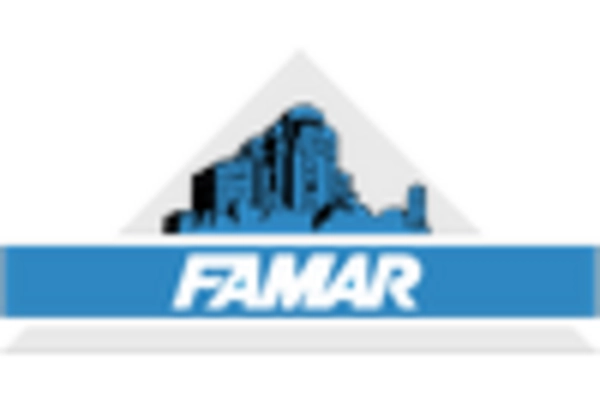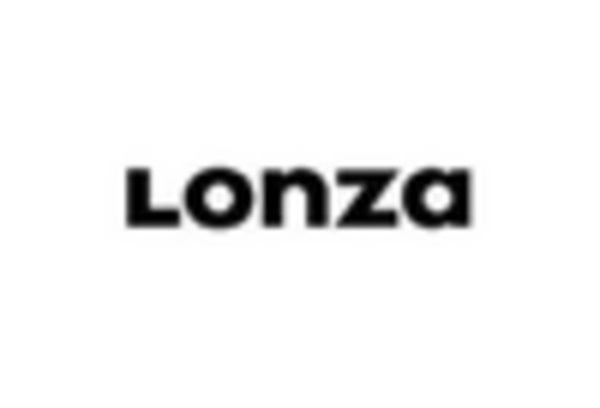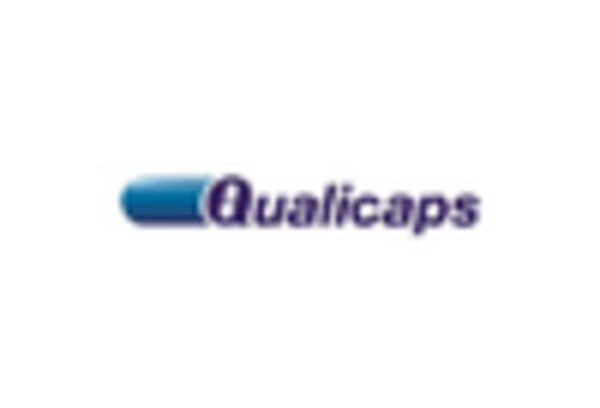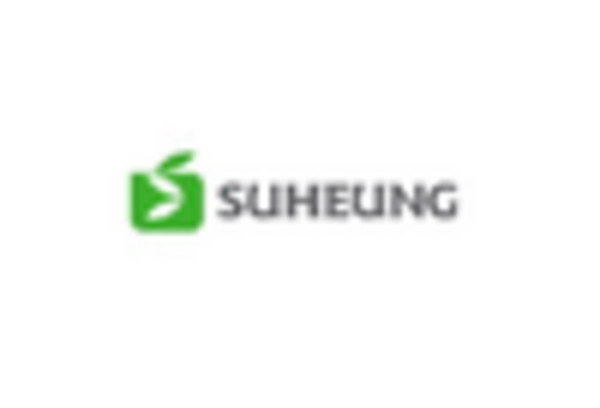Increasing Health Awareness
The Capsule Market is experiencing a notable surge in demand due to increasing health awareness among consumers. As individuals become more conscious of their health and wellness, there is a growing preference for dietary supplements and nutraceuticals, which are often delivered in capsule form. This trend is supported by data indicating that the dietary supplement market is projected to reach a valuation of approximately 300 billion dollars by 2025. The Capsule Market stands to benefit significantly from this shift, as capsules are perceived as a convenient and effective means of delivering essential nutrients. Furthermore, the rise in preventive healthcare measures is likely to drive the demand for capsules, as consumers seek to enhance their overall health and prevent chronic diseases. This evolving landscape suggests a robust growth trajectory for the Capsule Market.
Expansion of E-commerce Platforms
The Capsule Market is witnessing a transformative shift with the expansion of e-commerce platforms. The convenience of online shopping has revolutionized how consumers access health products, including dietary supplements and pharmaceuticals in capsule form. Data indicates that e-commerce sales in the health and wellness sector are expected to grow at a compound annual growth rate of over 10% in the coming years. This trend is particularly advantageous for the Capsule Market, as it allows for a broader reach and accessibility to diverse consumer segments. Additionally, the rise of subscription-based models in e-commerce is likely to foster customer loyalty and repeat purchases, further propelling the growth of the Capsule Market. As consumers increasingly turn to online channels for their health needs, the Capsule Market is poised to capitalize on this trend.
Innovations in Capsule Formulation
The Capsule Market is benefiting from continuous innovations in capsule formulation and design. Advances in technology have led to the development of novel capsule types, such as vegetarian capsules and enteric-coated capsules, which cater to diverse consumer preferences and dietary restrictions. This innovation is crucial, as it aligns with the growing demand for plant-based and allergen-free products. Furthermore, the introduction of targeted delivery systems within capsules enhances the bioavailability of active ingredients, making them more effective. Market data suggests that the demand for vegetarian capsules is on the rise, with projections indicating a significant increase in market share within the Capsule Market. These innovations not only improve product efficacy but also expand the potential applications of capsules in various therapeutic areas, thereby driving growth in the Capsule Market.
Regulatory Support for Nutraceuticals
The Capsule Market is experiencing favorable conditions due to regulatory support for nutraceuticals and dietary supplements. Governments are increasingly recognizing the importance of preventive healthcare and the role of supplements in promoting health. This regulatory environment encourages innovation and investment in the Capsule Market, as companies seek to develop new products that meet safety and efficacy standards. Data from regulatory bodies indicates a rise in the number of approved nutraceutical products, which is likely to enhance consumer confidence in capsule-based supplements. Additionally, as regulations evolve to accommodate emerging trends in health and wellness, the Capsule Market is expected to adapt and thrive. This supportive framework may lead to increased market penetration and expansion opportunities for businesses operating within the Capsule Market.
Rising Popularity of Personalized Nutrition
The Capsule Market is poised for growth due to the rising popularity of personalized nutrition. As consumers increasingly seek tailored health solutions, the demand for customized dietary supplements in capsule form is on the rise. This trend is supported by Market Research Future indicating that the personalized nutrition market is projected to reach a valuation of over 10 billion dollars by 2026. The Capsule Market stands to benefit from this shift, as capsules offer a versatile and convenient delivery method for personalized formulations. Furthermore, advancements in technology, such as DNA testing and health assessments, enable consumers to make informed choices about their nutritional needs. This evolving landscape suggests that the Capsule Market will play a crucial role in meeting the demands of health-conscious consumers seeking personalized solutions.


